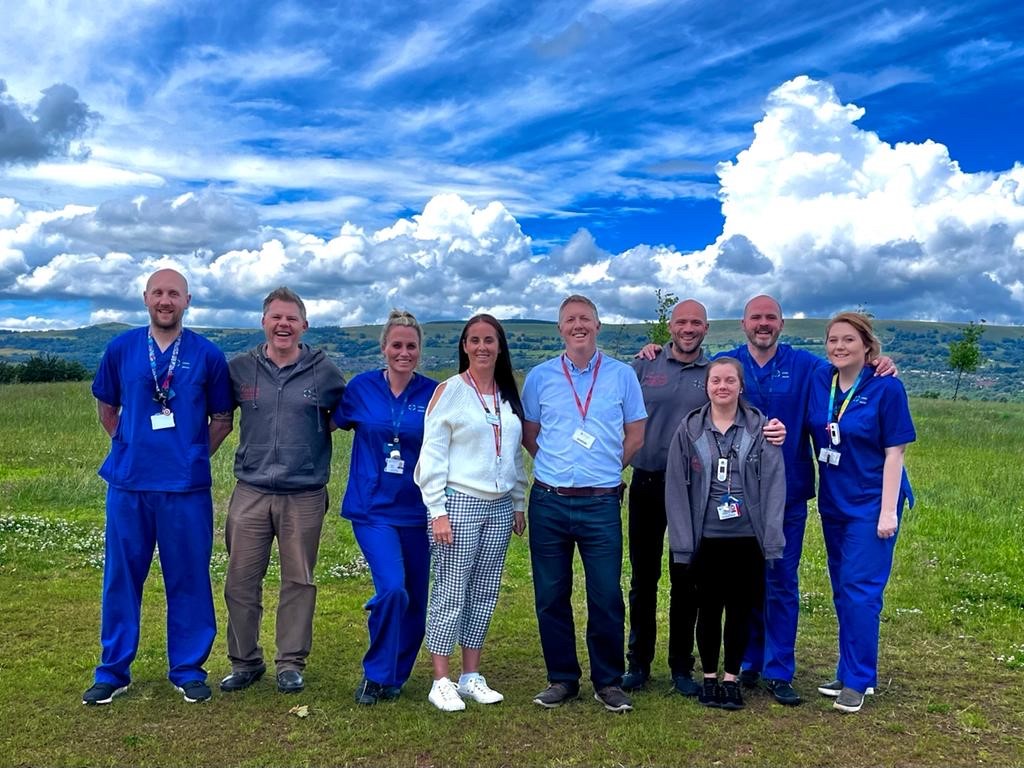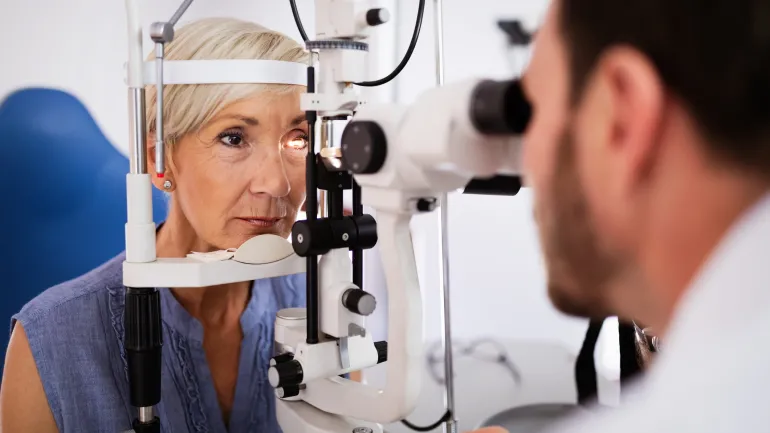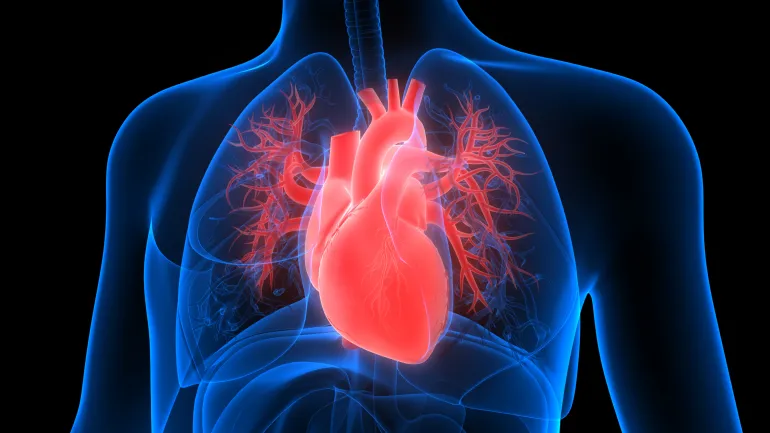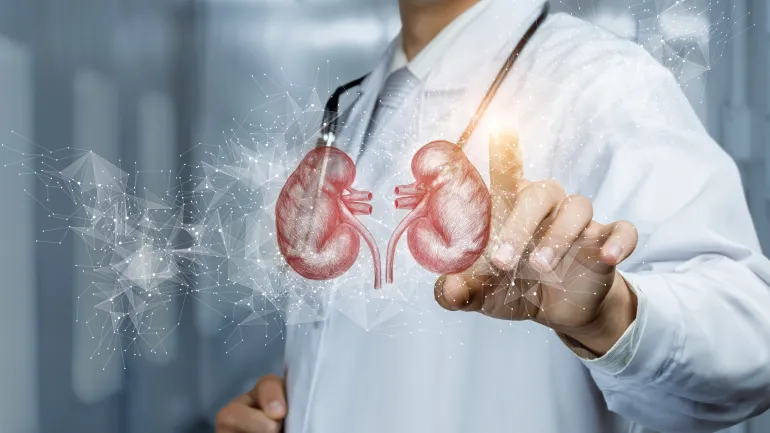In light of increasing numbers of alcohol-related hospital admissions, Aneurin Bevan University Health Board (ABUHB) has developed a service to support patients and tackle harmful drinking behaviours, reducing admission rates and improving health outcomes.

The challenge
Deaths in Wales from chronic liver disease have more than doubled over the last twenty years, with excessive alcohol consumption believed to be one of the key reasons behind the rise. In line with this, the number of alcohol related deaths in Wales has also climbed - up 20% in 2021 compared to 2019. Within ABUHB, alcohol related hospital admissions are some of the highest in the country.
Education and support are crucial to bring down these rates by helping patients recognise and reduce unhealthy drinking behaviours, in turn minimising their risk of avoidable harm.
Alcohol care teams play a critical role in providing these services. However, with growing pressures on an under-resourced service, there are fears that alcohol-related admissions could soar, especially following the pandemic where many people’s drinking habits increased.
In response to the burden presented by alcohol related admissions, in 2017, the Welsh Government announced its ‘liver disease delivery plan’ which outlined a strategy to improve care for people with the condition and reduce the rates of those developing it in the first place. A key part of this plan included increasing the provision of alcohol support services across health boards.
At the time, despite having the second highest rate of alcohol related hospital admissions in Wales, ABUHB was the only health board in the country not to have any specific services to support patients attending its hospitals with alcohol misuse disorders.
Solution
To address the increasing numbers of patients presenting with alcohol-related problems, in 2018, ABUHB launched an 18-month pilot project which saw it set up an alcohol liaison service with three members of staff at the Royal Gwent hospital. The service provided support to those attending hospital due to injuries or ill health resulting from excessive alcohol consumption.
Following the trial’s success - with a decrease in ambulance calls, a reduction in repeat attenders and cost savings - the Health Board secured funding to expand the service to cover more sites and increase its operating hours.
While the trial was initially put on pause due to outbreak of Covid-19, work restarted in September 2021, when ABUHB began establishing a larger permanent alcohol liaison service. Over the last nine months it has grown its team, now boasting eight staff including specialist nurses and support workers, and has moved from a five-day to seven-day service based out of the Grange Hospital.
A range of support is offered including one-to-one advice, medication, and referrals to housing, social services, and other community alcohol services, which all help to prevent relapse. The team also provides nurse-led education to clinicians across the health board on how to identify potential alcohol-related issues in patients, as well as how best to manage alcohol withdrawals.
Similarly, support is provided to anaesthesia teams to ensure patients attending hospital for surgery are screened and supported if they have a dependence on alcohol. This helps ensure operations go ahead as safely as possible, minimising the risk of complications and reducing the length of hospital stays.
The increased service will enable ABUHB to meet the full demands of its hospitals and capture every referred patient, instead of having to prioritise those in the greatest need. It will also allow the team to conduct follow up appointments and phone check-ins, which are key to supporting patients to maintain abstinence once they leave hospital.
Outcomes
Following the establishment of the seven-day service, ABUHB has gone from being the only Welsh Health Board with no specific alcohol support team, to the only one in Wales with a fully staffed, seven-day service.
The support offered by the service has helped to reduce harmful drinking behaviours among patients, minimising the risks of health complications including liver disease and strokes, as well as preventing re-admissions. During the pilot, ABUHB saw a 31% decrease in the number of readmissions.
As well as the obvious advantages for patients, the service has also resulted in significant long-term benefits for the wider community through a reduction in hospital admissions and length of stay, and a reduction in anti-social behaviour and alcohol related social crime.
With a larger team, the service is able to have a greater presence across hospitals with someone present in different departments, such as A&E, where they can embed themselves and educate staff on how to recognise those that may be presenting with issues associated with alcohol. This means that individuals who might have otherwise been missed, receive intervention early on, preventing them from developing more serious problems in the future.
What’s next?
The alcohol liaison service is now working with the Value-Based Healthcare (VBHC) team at ABUHB to collect and evaluate patient data in order to improve its support.
Looking ahead, it is hoping to collaborate with GP surgeries and specific hospital departments - such as the falls team which sees a high number of cases resulting from excessive alcohol consumption - to provide education and resources. It is also looking into offering community recovery groups. Lastly, the team has secured funding for a fibro scanner that shows the level of liver disease present in a patient, which will help to highlight the severity of alcohol related issues and motivate patients to make changes.
Kate Pronger, lead alcohol liaison nurse at ABUHB, said: “The establishment of our dedicated alcohol support service has already had a huge impact for patients and the Health Board, and will continue to do so now that we have reached our goal of offering a seven-day provision.
“It has helped improve patients’ health outcomes and, in some cases, prevented conditions from progressing into severe liver disease. It has also resulted in significant savings for the Health Board with early interventions averting the need for longer hospital stays and readmissions.
“At the same time, the service has had wider reaching benefits for patients and their families that can’t be measured through data, but which have a huge effect on their outcomes. We have heard stories of individuals who have reconnected with loved ones, children who are performing better in schools, and people who have turned their lives around thanks to the support we provide.”
For more information, contact Kate Pronger: kate.pronger@wales.nhs.uk



